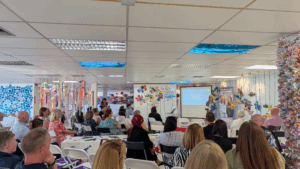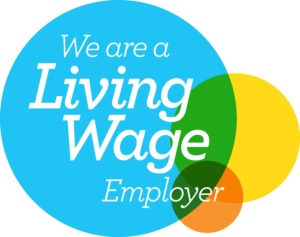Young Glasgow Talent is delighted to share with you a piece from Jennifer Cunningham. A YGT mentor of 18 months and a writer, Jennifer emphasises the vital difference mentoring makes. Sharing the moments that sparked mentor mentee relationships. And the lasting impact mentors make. Read her phenomenal piece:
For children in the care system, the official term of “looked after” is too often a cruel irony. Foster parents and residential care staff often do a heroic job against the odds and yet the statistics continue to shame us. People who have been in care as children account for half the prison population, almost half suffer mental illness. They are five times more likely to leave school at 16 or sooner and fewer than half go on to work, college or university when around half of all school-leavers now go into higher education. Most shockingly, they are 20 times more likely to die before the age of 25.
This has prompted the long overdue review of the care system announced by Nicola Sturgeon at the SNP conference last month. To produce change, however, it must include young people too often hidden. They may have been briefly in care and returned home or under supervision orders at home. They and others in difficult situations who are invisible to the “system” have been the focus of the remarkable MCR Pathways programme in Glasgow for the past nine years. The idea is that by pairing the most disadvantaged young with a personal mentor to provide support and be a positive role model, they will increase in confidence and begin to recognise their own potential. Together they will identify the young person’s talents and strengths and chart a path to possible qualifications or jobs. If there are difficulties on the way, it becomes easier to work through them with the support of an adult who is committed to help not judge. Volunteer mentors now support 500 young people in 15 schools in the city.
Read our mentor Jennifer’s feature in The Herald
The lightbulb moment came when youngsters involved in the pilot scheme set up by MCR’s founder Iain MacRitchie, were asked what changed their attitude to school. One girl said: “Hur,” pointing to the senior staff member who had kept on her case relentlessly. Suddenly it was crystal clear that the only thing that kept a very troubled youngster at school was the personal relationship. The focus was switched from group support to individual mentors.
The effect was tangible. The staying-on rate in five schools rose to 79% among mentored pupils, compared with 27% for non-mentored but there was also a general rise in the schools where mentoring took place. Glasgow City Council’s education department was convinced and in a commitment to improving the chances for the most disadvantaged pupils, has signed one of the country’s biggest Public Social Partnerships (PSPs), which will see MCR providing mentors in all 30 secondary schools in the city over the next three years.
That will require a considerable increase in mentors. There are currently 300 active in schools with more going through the screening, training and matching process. MacRitchie would like 2000 eventually. It is ambitious but, prompted by the campaign run by The Herald newspaper or inspired by friends and colleagues, 1000 have inquired about volunteering. It is a considerable strength that they form a wide cross-section of the population, with as many under 35 as over 65 and the majority between 35 and 55.
Trusting relationships are the foundation stones for self-belief but cannot be built overnight. Those who have been let down by once-trusted adults are rightly suspicious a new “friend”. Since it’s a voluntary arrangement on both sides, however, there is a willingness to build a bridge. Mentors and young people alike approach the first meeting expecting awkwardness.
Some pairs find common interests quickly as a result of the matching process. I knew my young would-be journalist liked reading but I had not expected him to be clutching a 1000-page novel from the 1940s. Clearly, we would have enough to talk about.
Sharon McIntyre wore green tights for the first meeting, hoping it would start a conversation. “When I first met my 14-year-old mentee, she was pacing round me and swearing a lot. The first thing she said was: ‘I can’t believe what you’re wearing’ and I thought: ‘Thank God’”. It was the beginning of a very positive relationship.
As the welfare reform manager of Wheatley Group, a public agency which includes Glasgow Housing Association and other providers of social housing and mid-market commercial rented property for 200,000 tenants, she is working with MCR to make Wheatley Group one of the models for businesses encouraging staff to become mentors as part of a leadership training programme. Now almost 50 are involved. “I’m trying to move away from the idea that giving an hour a week is a deficit to the idea that it is an asset. They are getting something back, because you definitely feel more productive afterwards. It’s like a wee holiday once a week,” says McIntyre.
There is a wider purpose to this strategic partnership. McIntyre wants to bring about a more integrated working between education, social care and housing. She explains: “Time after time, we are seeing young people coming through and failing in their tenancy because they have no support. We now want to engage with them much earlier about how tenancies work and what is required. Because those involved with MCR are among the most likely to need a tenancy, we are working with mentors so that they can talk through the issues if a housing need arises”.
In addition to the individual mentoring sessions, MCR is working to encourage employers, colleges and universities to become more accessible. The Talent Tasters programme is a series of bite-size work experience sessions for small groups of pupils in S3 and S4. They can then progress to an in-depth session with a manager or try an alternative taster. It’s a typically pragmatic response to the reality that few 14-year-olds know what they want to do for a living and many who have an idea find it does not match reality. It’s an opportunity to try something, with the understanding that it’s alright if they don’t like it because they will have learned something useful about themselves. For those who find something that appeals, it provides the vital gateway to information and advice on how best to get into their chosen field, whether through apprenticeships, college or university. For youngsters in the care system, a mentor is the equivalent of the family friend who secures an internship for well-connected young people.
Others pass on skills, such as chess. A young person who has a mentor working in an industry they are interested in has the equivalent of the family friend who provides advice and perhaps work experience. All mentors provide a listening ear; some suggest how to deal with bullies; some help with school work. One mentor says the highlight for him was when his mentee referred to him as “the guy who helps me get through stuff”.
It’s never plain sailing, of course. Sharon McIntyre says her second mentee had complex relationship problems.
“We talked about everything from anger management and dealing with bullying to how best to look after her younger siblings. There were a lot of ups and downs but it was a social and emotional partnership to build up her resilience”.
That was cemented when her young person said:
“I thought you were going to be someone else telling me what to do. But you’re really just here for me”.
That sums up the whole, deceptively simple basis of MCR. It’s a more focused version of something that has always happened, usually in workplaces. Sharon herself might well have remained in secretarial work had her first boss not pushed her to apply to university
There is now a legion of young Glaswegians who have moved on to some form of training or study and say that without mentoring they would have no prospects. Some have been so empowered that they “When I wanted to give up on everything including school, my mentor helped me strive for my best and stick in at school. I’m now doing an HNC at college and loving it,” is a typical comment but that young man omitted to say that he now feels so confident that he has become a mentor.
When mentees don’t have much to laugh about, fun is an essential part of the mix. One mentor recalls a meeting which ended with her mentee asking to be excused early to collect a punishment exercise. In answer to the query: “What did you do?” came that teenage standby “Nuthin”. It was followed by a pause then a devastating: “That was the problem”. The mentor had to laugh in appreciation of the “perfect comic timing”.
There is no lack of commitment on the part of mentors. The First Minister appeared to be on the same page when she called for a commitment to our most vulnerable children, pointing that they don’t need a system that just stops things happening to them but one that makes things happen for them and gives them a sense of belonging. There is a model already in place. It just needs more of us for an hour a week.”
We have more young people signing up for Young Glasgow Talent’s help. They need mentors to make a huge difference to their confidence, educational outcomes and future life chances. Can you help them and join amazing people like Jennifer and Sharon? And simply be there for a young person? Find out more about becoming a mentor.
Can your organisation help? To become involved in our Talent Taster programme, alongside our partners such as The Herald, simply Get Involved.
We’re always looking for new mentors to reach all the new young people who are coming on board with the programme. Help us spread the word by letting your friends and family know how worthwhile mentoring can be!





